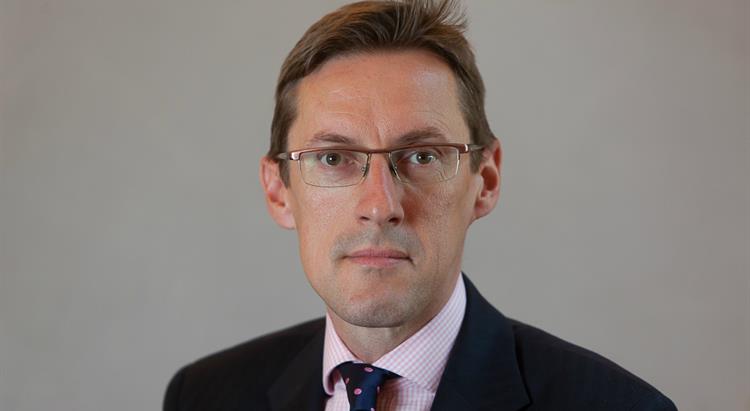09 December 2020

On this, the eighteenth annual International Anti-Corruption Day, 9 December, the UK, Switzerland and Jersey, are proud to be working with Kenya in the fight against corruption.
In 2018, together with Kenya we signed The Framework for the Return of Assets from Corruption and Crime in Kenya (FRACCK). Now, we are going further to start the implementation of this landmark initiative which will ensure the return of stolen assets to the country.
These funds belong to the Kenyan people. Once finalised, the first return under this agreement by the Attorney General of Jersey will, at the request of the Government of Kenya, provide KES444 million towards the COVID-19 recovery.
This includes the procurement of essential medical equipment and supplies, and supporting health infrastructure in counties where there is limited funding, high risk of infection and limited bed capacity. It will also contribute to strengthening healthcare worker capacity and enhancing home-based care. All funds will be channelled directly through implementing partners.
This is just one step on a long journey in tackling corruption across the world. Theft is bad for business, discouraging foreign investment and overall competitiveness. It is bad for development, robbing the country of the revenue it needs to finance the economic recovery from COVID-19. And it is bad for people – fuelling injustice and conflict, undermining public service delivery, and disproportionately affecting women and the poorest.
Progress is being made, in Kenya and internationally. We have seen a strong push on anti-corruption in recent years, including the bolstering of institutions including the Office of the Director of Public Prosecutions and the Office of the Auditor General. The Ethics and Anti-Corruption Commission announced last month that it had recovered KES25.4 billion in stolen assets in the last five years. Convictions in cases such as the NCPB Maize scandal have set a powerful new legal precedent. We are proud to have supported all of these initiatives, as part of our long-term partnership with Kenya on open societies, business integrity, and democracy.
But we must be honest with ourselves on the scale of the problem. The recent report by the ODPP detailed KES140 billion in public funds unaccounted for. Kenya’s position in the Transparency International Corruption Perceptions Index remains low; 137th in the most recent survey.
In this, the 10th anniversary year of the adoption of the Kenyan constitution, we commend the steps taken in the last decade to fight corruption, and urge the Government of Kenya to continue to prioritise combatting the scourge of corruption and economic crime in the months and years ahead. We FRACCK partners, and the broader international community, stand ready to support these steps with unwavering resolve.
This is a global problem. Economic crime – which greatly exacerbates the harms caused by corruption – knows no borders. This means coordinated international action is essential so global financial centres – and important regional financial centres such as Nairobi – take a united front on implementing robust measures to prevent the flow of dirty money.
In his speech to the Atlantic Council earlier this year, President Kenyatta asked the large financial centres to do more to be “inhospitable to illegal and illicit financial flows out of Africa”.
We entirely agree. The UK is proud of our status as one of the world’s leading international financial centres with a strong and open economy. But this openness creates vulnerability to economic crime. Last year we launched the UK’s first Economic Crime Plan. We have brought in additional civil powers to strengthen our asset recovery regime, such as Unexplained Wealth Orders (UWO) to require a person to explain the sources of their wealth.
Switzerland too attaches great importance to preserving the integrity of its prominent and competitive financial centre. Switzerland takes the problem of illicit financial flows very seriously and is an active proponent of international standards to combat abuse. So far, it has sent back over two billion USD to the countries of origin and has implemented a number of measures to ensure the integrity of its financial centre. Its asset recovery policy is part of its ambition to protect the financial centre of illicit flows.
Jersey, as a leading international finance centre, has a strong record of working together with international partners, like Kenya, to tackle corruption. The Island is committed to sharing our experience with Kenya through the Memorandum of Understanding on financial cooperation signed between Jersey and Kenya in 2018, and through the conclusion of the Asset Sharing Agreement.
In another area crucial to combating economic crime – transparency – we are seeing evidence of the global dial moving. We welcome and commend Kenya on the recent implementation of the beneficial ownership e-register, and eCitizen portal, which will significantly advance transparency of legal entities in the country along with critical digitalisation – all of these efforts are critical to the global fight against corruption.
The road is long, but the journey has begun. We will continue to play our part returning stolen assets to the people of Kenya.
Signatories:
• UK – Jane Marriott, British High Commissioner to Kenya
• Switzerland – Valentin Zellweger, Ambassador of Switzerland to Kenya
• Jersey – Senator Ian Gorst, Minister for External Relations